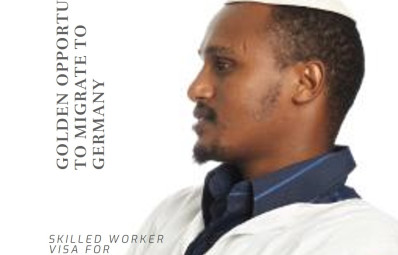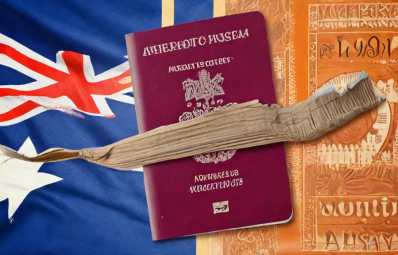Posted At: Sep 09, 2023 - 356 Views
Economic Class
The economic class is the most popular pathway to permanent residency in Canada. This category is designed for those who can contribute to the Canadian economy, and includes the Federal Skilled Worker Program, Federal Skilled Trades Program, Canadian Experience Class, and Provincial Nominee Program. The Federal Skilled Worker Program is designed for those with work experience and skilled education, and requires that applicants meet minimum language proficiency levels, have a certain amount of work experience, and demonstrate that they have the financial means to settle in Canada. The Federal Skilled Trades Program is for those who are qualified to work in a skilled trade, and requires a minimum of two years of work experience in the trade, as well as the ability to demonstrate that they can support themselves financially. The Canadian Experience Class is for those who have already had work experience in Canada, and requires a minimum of 12 months of full-time work experience in Canada within the past three years. The Provincial Nominee Program allows provinces to nominate individuals who meet certain criteria for permanent residency.
Family Class
The family class is the second most popular pathway to permanent residency in Canada. This category is designed for those who have close family members who are Canadian citizens or permanent residents, and includes the Spouse or Common-Law Partner in Canada, Parent and Grandparent Super Visa, and Dependent Child categories. The Spouse or Common-Law Partner in Canada category is for those who are married or living in a common-law relationship with a Canadian citizen or permanent resident. The Parent and Grandparent Super Visa is for those who have children or grandchildren who are Canadian citizens or permanent residents. The Dependent Child category is for those who are under the age of 22 and are dependent on their parent or guardian.
Humanitarian and Compassionate Considerations
The humanitarian and compassionate considerations category is for those who do not meet the criteria of other immigration categories, but who have compelling reasons to remain in Canada. This category is designed for those who have experienced or are at risk of experiencing hardship if they are forced to leave Canada, and includes applications for permanent residency based on humanitarian and compassionate grounds, or based on public policy considerations.
International Mobility Program
The International Mobility Program is for those who are not eligible for any other immigration category, but who are able to work in Canada due to an agreement or arrangement between Canada and their home country. This category includes the International Experience Canada program, which allows young people from certain countries to work in Canada for up to two years, and the Working Holiday Program, which allows young people from certain countries to work in Canada for up to one year.
The different routes to permanent residency in Canada, include the Federal Skilled Worker Program, Provincial Nomination Programs, Canadian Experience Class, Family Class, and Investor and Entrepreneur Class.
Federal Skilled Worker Program
The Federal Skilled Worker Program (FSWP) is a popular program for those looking to gain permanent residency status in Canada. To be eligible, applicants must meet certain criteria, including having at least one year of full-time work experience in a qualifying occupation, having a valid job offer in Canada, and meeting the minimum language requirements. Those who are successful with their application will be assessed according to the Comprehensive Ranking System (CRS), which takes into account factors such as age, education, work experience, language proficiency, and other factors.
Provincial Nomination Programs
Provincial Nomination Programs (PNPs) are designed to attract immigrants to specific regions of Canada. Each province and territory has its own PNP that requires applicants to meet certain criteria, such as having a job offer from an employer in the province, or having family ties to the area. Those who are successful with their application will be awarded a provincial nomination certificate which they can use as part of their application for permanent residency.
Canadian Experience Class
The Canadian Experience Class (CEC) is a program designed for those who have already completed a period of work in Canada. To be eligible for the CEC, applicants must have at least one year of full-time work experience in Canada in the past three years, and must meet the language requirements. Those who are successful with their application will be awarded permanent residency status.
Family Class
The Family Class is a program designed for those who have close family ties to a Canadian citizen or permanent resident. To be eligible, applicants must demonstrate that they have a genuine relationship with a family member in Canada who is willing to sponsor them. Those who are successful with their application will be awarded permanent residency status.
Investor and Entrepreneur Class
The Investor and Entrepreneur Class is a program designed for those who have the financial resources to invest in or start a business in Canada. To be eligible, applicants must meet certain criteria, such as having a net worth of at least $1.6 million, and must be willing to invest at least $800,000 in a qualifying Canadian business. Those who are successful with their application will be awarded permanent residency status.
Conclusion
In conclusion, there are many different routes to permanent residency in Canada, each with its own unique requirements and advantages. Those who are looking to become a permanent resident of Canada should consider the different programs available and determine which one best suits their needs.
Conclusion
In conclusion, there are several pathways to permanent residency in Canada, and the route chosen will depend on the individual’s qualifications, experience, and other factors. The most popular pathways are the economic class, the family class, and the humanitarian and compassionate considerations category, but there are also options for those who do not meet the criteria for any of these categories, such as the International Mobility Program. It is important for individuals to research all of their options and to understand the requirements in order to apply for permanent residency in Canada.






